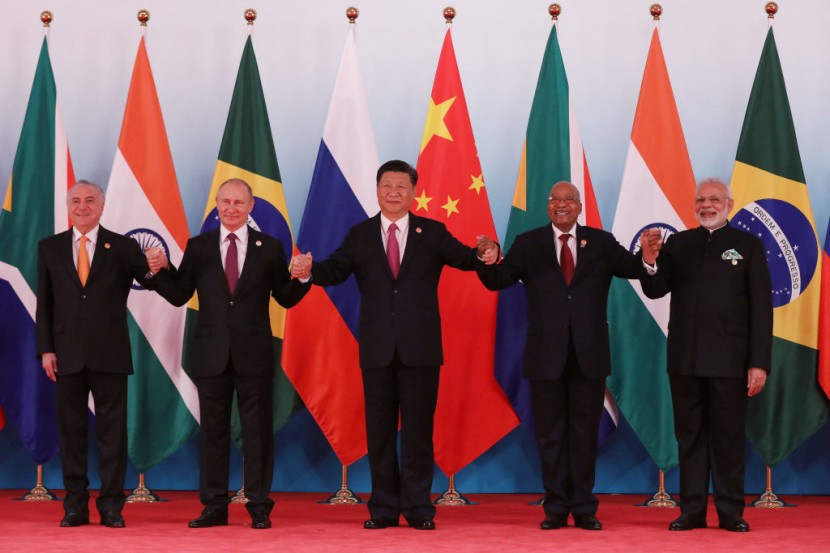
The BRICS group of nations, which includes top emerging economies, has extended invitations and is set to include six new countries to spread global influence and compete against Western coalitions.
The group, which currently consists of Brazil, Russia, India, China, and South Africa, is set to be joined by Argentina, Egypt, Ethiopia, Iran, Saudi Arabia, and the United Arab Emirates. After the invitation, the new members are set to join the group starting on Jan. 1, 2024, formally.
BRICS Sent Invitations to 6 Countries
Initially formed in 2009 as BRIC, the bloc included its newest member, South Africa, in 2010. But now, the group of nations is looking to grow even stronger to include developing nations that can better put the interests of the Global South on the global stage.
Before the start of the BRICS' annual summit that was held in South Africa this week, more than 40 countries expressed their interest in joining the coalition, 23 of which have filed formal applications to become members, as per Aljazeera.
In a declaration that the BRICS group adopted on the final day of the summit on Thursday, it noted that they appreciated the considerable interest that other nations have shown in becoming members of the bloc.
The group noted that it has selected six countries to include as members after "BRICS countries reached consensus on the guiding principles, standards, criteria, and procedures of the BRICS expansion process." However, the bloc did not provide any details regarding the specific criteria it discussed.
A professor with the Center for the Advancement of Scholarship at the University of Pretoria, Danny Bradlow, said it was difficult to find commonalities among the six countries invited to join the BRICS group. He argued that there was only the fact that they each were considered significant states in their home regions.
Expanding Global Influence
Sanusha Naidu, a senior research fellow at the Institute for Global Dialogue, a South African think tank focused on Africa and China, said that the addition of Egypt, Iran, Saudi Arabia, and the UAE makes it very "Middle East centric."
The political deputy of Iranian President Ebrahim Raisi, Mohammad Jamshidi, called the country joining the bloc a "strategic victory" for Iran's foreign policy. On X, formerly known as Twitter, he extended praise to the Islamic Revolution's supreme leader and the country as a whole, according to Yahoo Finance.
However, despite its plans to extend its influence, the BRICS group has a weakness: it is not seen as an effective policy-making forum. Many see a lack of unity among its members regarding their purpose, and some argue that the coalition cannot enforce its decisions.
BRICS has the same problems that the Group of Seven (G7) has, such as its geopolitical divide and India's strategic rivalry with fellow member China. The latter has resulted in the group becoming a weaker trade and regulatory policy forum, said the Financial Times.
Related Article: Japan Starts Releasing Fukushima Nuclear Wastewater
© 2025 HNGN, All rights reserved. Do not reproduce without permission.








